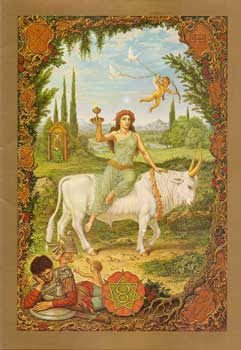Preparándome para mi peregrinación anual al Festival de Jazz de Nueva Orleans para sacudirme las arrugas del alma, renovar mi espíritu y recargar las pilas para continuar la lucha contra los fascistas, me llegó la noticia de la muerte del Papa Francisco. Siendo un pagano renacido, el Papa Francisco casi me tentó a volver a mi catolicismo natal. El Papa Francisco honró a su tocayo en su reverencia por la Tierra y siguió las enseñanzas de Yeshúa de Nazaret.
Quizás sea apropiado que el Papa Francisco falleciera la víspera del Día de la Tierra. Habló por la Tierra y su defensa (y la defensa de toda la vida que de ella viene) contra la destrucción y los abusos del capitalismo y su frutar tóxico en el fascismo que ahora nos tiene oprimidos. Es un día oscuro para la Tierra, nuestra madre, un día en el que debemos comprometernos a convertirnos en nuestra Amada Comunidad y a hacer nuestra revolución de amor, compasión y justicia.
As I prepared for my yearly pilgrimage to New Orleans Jazz Fest to shake the wrinkles from my soul, renew my spirit, and recharge my batteries to carry on the struggle in resisting the fascists, the news came of the death of Pope Francis. Born-again pagan that I am, Pope Francis almost tempted a return to my natal Catholicism. Pope Francis honored his name-sake in his reverence of the Earth and followed the teaching of Yeshua of Nazareth.
Perhaps it is fitting that Pope Francis died the day before Earth Day. He spoke for the Earth and her defense (and the defense of all the life she bears) against the destruction and abuses of Capitalism and its toxic fruiting into the fascism now holding us in thrall. It is a day dark for the Earth our mother, a day on which we must commit ourselves to become our Beloved Community and wage our revolution of love, of compassion, of justice.
Un sacerdote desterrado se dirige a Coatilcue
Ave, Madre cabeza de serpiente,
Madre faldas de serpiente —
Los estambres se han formado
en pájaros volantes cagando flores,
el amate se ha machacado
para formar pájaros desposados
vistos sólo en sueños.
Las flores y cantos se han tejido;
no se han creído las tintas rojas, las tintas negras.
Madre collar de manos y corazones —
Somos planetas;
conversamos con nuestros corazones;
somos dueños de un rostro, un corazón,
pero entre nosotros son grandes las distancias.
Una vez hubo grandes árboles
y las aguas le hablaban fuertemente
al gavilán escuchante.
La crueldad conocía el color, el olor de la sangre.
Madre cinturón de culebra,
hebilla de calavera —
Los mares han sido violados
y las aves marinas ennegrecidas
reclaman a la luna violada.
Madre manos de serpiente,
Madre pies de águila —
Tu hijo te ha traicionado
y los trece cielos
que cargas a cuestas
los ha envenenado.
La obsidiana con que nos cortamos las manos
labrando instrumentos de sacrificio
está abandonada.
Ya no es sagrado el dolor
y por lo que pagamos con nuestra sangre
ya no es la vida.
~ Rafael Jesús González
An Exiled Priest Addresses Coatlicue
Ave, serpent-headed Mother
serpent-skirted Mother —
The yarns have been shaped
to flying birds that shit flowers,
the amate paper pounded
& the paints spread
to form mating birds
seen only in dreams.
The flowers & song have been woven;
the red & the black inks have not been believed.
Mother collared in hearts & hands —
We are planets;
we converse with our hearts;
we are masters of a face & a heart,
but the distances are great among us.
Once there were great trees
& the waters spoke loudly
to the listening hawks.
Cruelty knew the heat & color of blood.
Snake-belted,
snake-buckled Mother —
The seas are defiled
& the blackened sea birds
cry to the defiled moon.
Serpent-handed,
Eagle-footed Mother —
Your son has betrayed you
& the thirteen heavens
you carry on your back
have been poisoned.
The obsidian we cut our hands on
shaping tools of sacrifice
is abandoned.
Pain is no longer sacred
& it is not life we pay for
with our blood.
~ Rafael Jesús González
El hacedor de juegos/The Maker of Games; Rafael Jesús González,
Casa Editorial; San Francisco 1977-78, author’s copyrights
e invitación - and an invitation:
2 Waverly Place
(between Sacramento & Clay Streets)
San Francisco, CA (415) 391-1317
Saturday, May 17, 2025
1:00 pm to 3:00 pm
featuring
Rafael Jesús González
Judith Offer































